release time:2023-06-19 15:22:30
Biochemical tests play a vital role in diagnosing and monitoring the health of our beloved pets. They provide valuable insights into their well-being, helping veterinarians make informed decisions about their care. In this article, we will delve into the significance of biochemical tests for pet health and explore when they are necessary. Additionally, we'll introduce the Seamaty SMT-120VP, a state-of-the-art full automatic biochemical analyzer designed specifically for animal diagnosis.
Biochemical tests are instrumental in understanding the internal workings of a pet's body. By analyzing blood, urine, and other bodily fluids, veterinarians can assess organ function, detect abnormalities, and identify underlying health conditions. These tests provide a comprehensive evaluation of a pet's overall health, beyond what can be observed through physical examinations alone. With biochemical tests, veterinarians can obtain detailed information about organ systems, metabolic processes, and potential imbalances, enabling them to provide more targeted and effective treatment plans.
1. Unexplained Symptoms: Biochemical tests become necessary when a pet presents with unexplained symptoms such as excessive thirst, weight loss, or lethargy. These tests help identify underlying causes such as organ dysfunction or hormonal imbalances.
2. Pre-Surgical Assessment: Prior to surgery, veterinarians may recommend biochemical tests to assess a pet's organ function and overall health. This ensures they are fit for anesthesia and can tolerate the surgical procedure.
3. Monitoring Chronic Conditions: Pets with chronic illnesses, such as diabetes or kidney disease, require regular monitoring of their organ function. Biochemical tests help veterinarians gauge the effectiveness of treatment plans and make necessary adjustments.
4. Medication Monitoring: Some medications can have an impact on a pet's organ function. In such cases, regular biochemical testing ensures that the medications are not causing any adverse effects and allows for timely adjustments if needed.
5. Routine Wellness Check-ups: Even when pets appear healthy, routine biochemical testing can help identify underlying health issues in their early stages. This proactive approach allows for early detection and prevention of potential complications.
Introducing the Seamaty SMT-120VP Vet Chemistry Analyzer, a cutting-edge, full automatic biochemical analyzer designed specifically for animal diagnosis. To ensure comprehensive animal health care and facilitate accurate treatment decisions, Seamaty has developed and updated a total of 39 diagnostic parameters and 13 reagent disc combinations for use with the SMT-120VP veterinary chemistry analyzer. These include the 24 Comprehensive Test Plus, 16 Health Check Parameters, 12 Feline Inflammation Tests, 10 Pre-operative Test Parameters, and more. Such a wide array of vet chemistry reagent combinations offers veterinarians the ability to select the appropriate clinical diagnosis, ensuring accurate and targeted treatment plans.
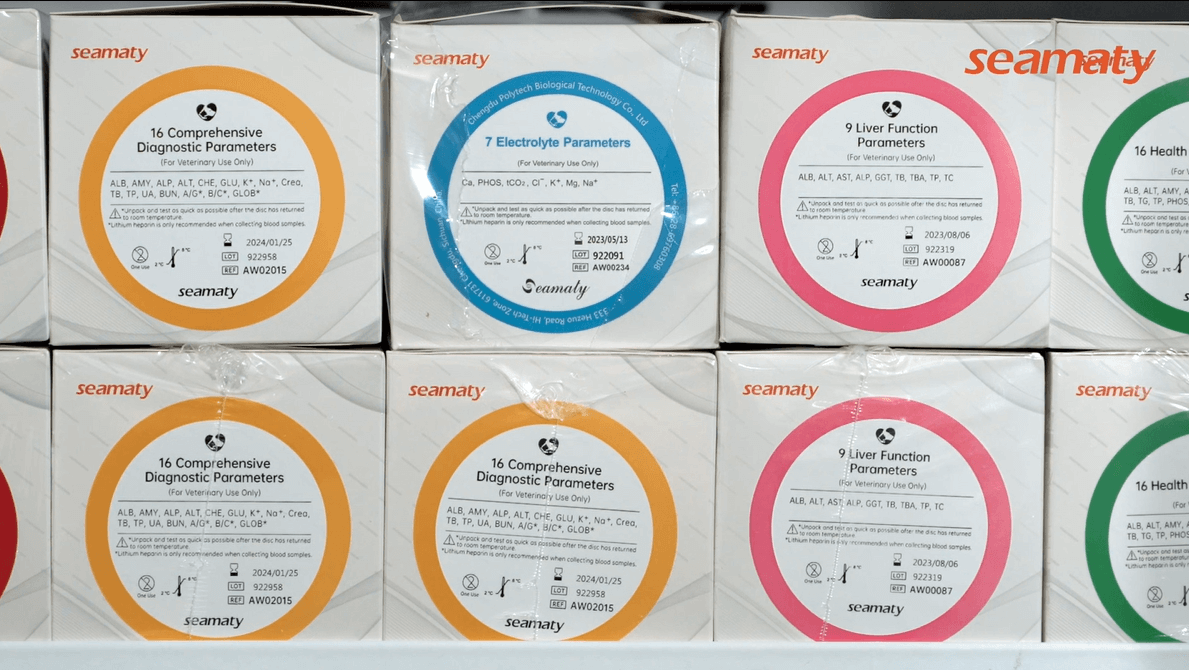
The Seamaty SMT-120VP offers numerous benefits for veterinary diagnosis. Its comprehensive testing capabilities, including the extensive range of diagnostic parameters and reagent disc combinations, allow for a thorough evaluation of a pet's health. With this analyzer, veterinarians can obtain precise and reliable results, enabling them to make accurate treatment decisions quickly. The user-friendly design of the SMT-120VP simplifies the testing process, making it accessible even to those without professional operation skills. The built-in features, such as a centrifuge, QR code, and Intelligent Quality Control, further enhance the efficiency and accuracy of the testing process.
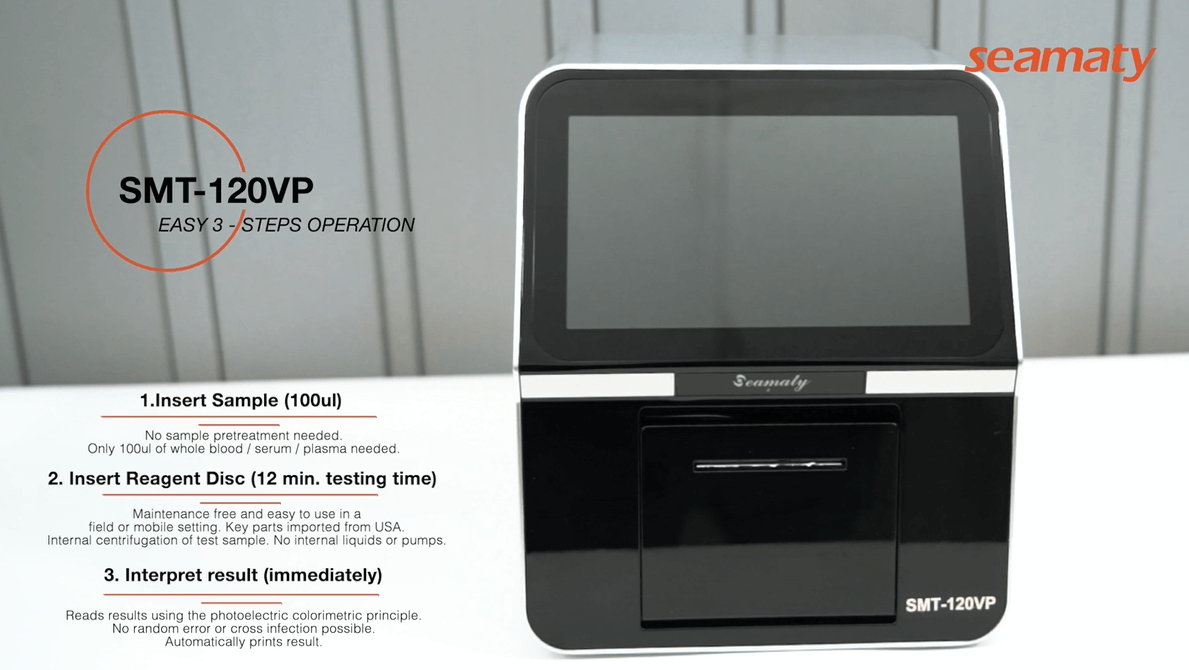 Conclusion
Conclusion
Biochemical tests are invaluable tools for ensuring the well-being of our furry companions. They provide essential insights into their internal health, aiding in early detection, accurate diagnosis, and effective treatment. When considering biochemical tests for your pet, the Seamaty SMT-120VP Vet Chemistry Analyzer stands out as a state-of-the-art solution. Its extensive diagnostic parameters and reagent disc combinations provide a comprehensive assessment of your pet's health, enabling veterinarians to make informed treatment decisions. By prioritizing regular biochemical testing and utilizing advanced technologies like the SMT-120VP, we can provide our pets with the highest standard of healthcare.
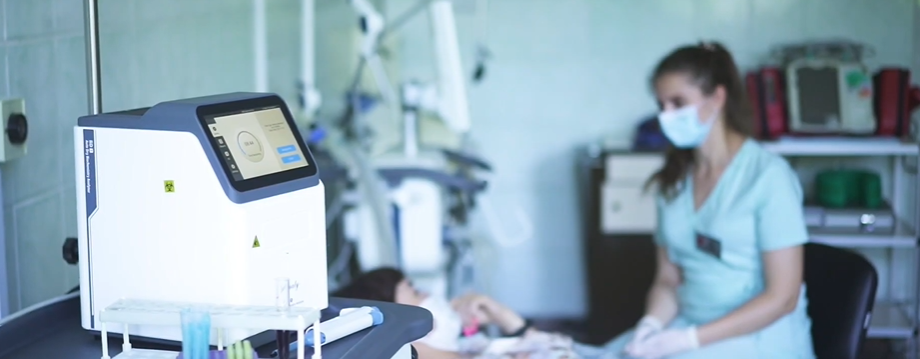
2022-07-15
In vitro diagnostics can be divided into clinical laboratory in vitro diagnostics and Point Of CareTesting (POCT). POCT can be operated on site by non-test professionals, and the results are generally available within 15 minutes, which is fast.
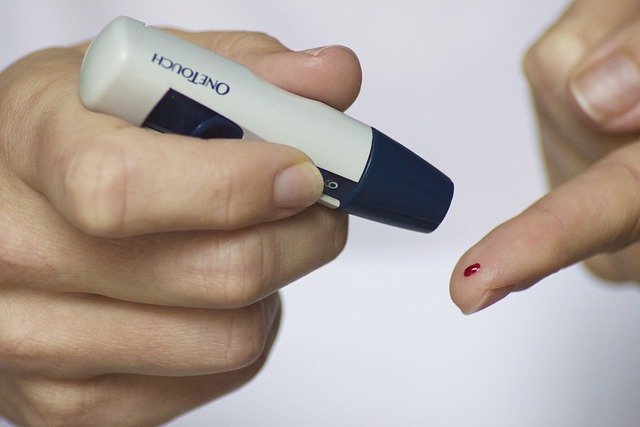
2021-11-09
Blood glucose meter to detect blood sugar is a simple, convenient and fast detection method, which is becoming more and more popular. However, some people find that the blood glucose test is different from that of automatic biochemistry for the same condition and the same patient when they use home blood glucose meter. So, what is the difference between home blood glucose meter and fully automatic biochemical meter when testing blood glucose?
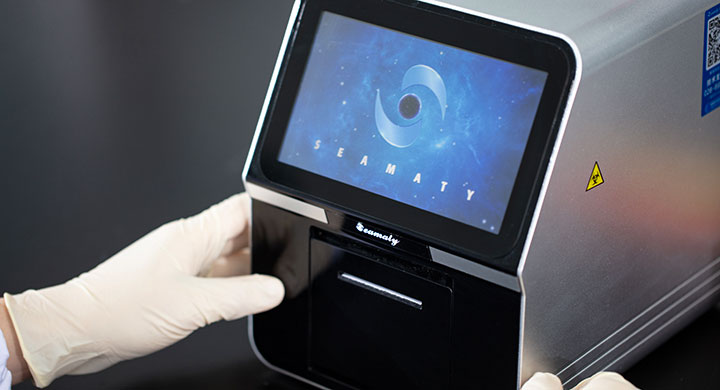
2021-08-30
Biochemistry analyzers and hematology analyzers are two different instruments with different properties and categories. However, there is overlap in their testing programs. The hematology analyzer can replace the traditional biochemistry analyzer to determine blood potassium, blood sodium, blood glucose and total blood carbon dioxide, but there are differences in the results of blood potassium and total blood carbon dioxide.